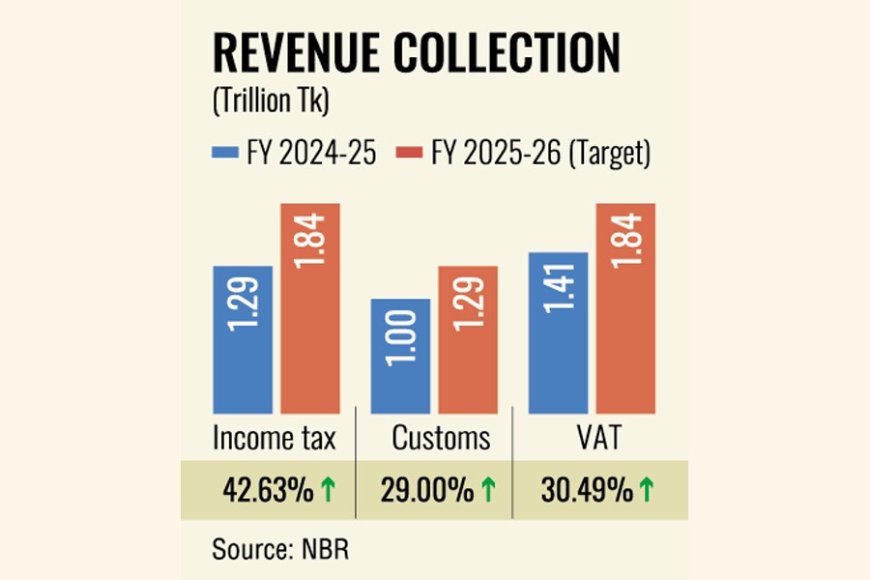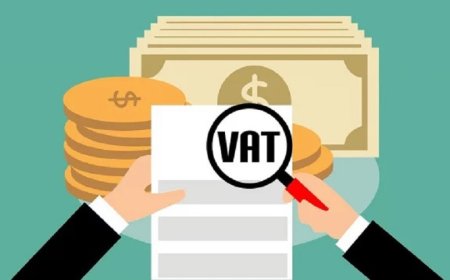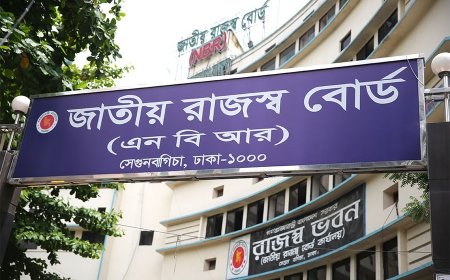Meeting FY26 revenue target requires major 35% jump in collection
Meeting FY26 revenue target requires major 35% jump in collection

NBR Faces 35% Collection Surge to Meet FY26 Revenue Target
To meet its ambitious revenue target for FY26, the National Board of Revenue (NBR) will need to boost collections by nearly 35% compared to the previous fiscal year.
The income tax wing faces the steepest challenge, with a target set 43% higher than its FY25 collection. Across the board, tax mobilisation goals for all three NBR wings—income tax, VAT, and customs—have been raised by 29% to 43%.
According to a Financial Express analysis of NBR data, the income tax target is up by 42.63%, followed by VAT at 30.49% and customs at 29%, based on actual collections in FY25.
The NBR collected Tk 3.70 trillion in FY25, far short of expectations. To hit the Tk 4.99 trillion target in FY26, an overall 35% growth in tax revenue is required.
Economists warn that such a sharp increase could trigger aggressive enforcement, putting pressure on taxpayers. Dr Fahmida Khatun, executive director of the Centre for Policy Dialogue (CPD), described the targets as “unrealistic under the current economic conditions.”
FY25 saw tax revenue growth of just 2.23%—one of the lowest in NBR history—amid months of political unrest. June’s collections alone dropped 19% year-on-year and fell 37.6% short of the monthly target.
Finance Adviser Dr Salehuddin Ahmed acknowledged the challenges but said the FY26 budget was designed conservatively, with restrained spending plans to offset revenue gaps.
Ministry of Finance projections suggest public expenditure may decline to 12.7% of GDP in FY26, while the development budget has been set at its lowest in four years.
"Typically, we collect two to three times more tax in June than in any other month," a senior NBR official said on condition of anonymity. "But FY25 fell short due to internal unrest, weak ADP implementation, stagnant investment, and a sluggish business climate."
Dr Khatun added that businesses are still reeling from instability, with rising costs and squeezed profit margins limiting their ability to pay higher taxes.
She also pointed to new headwinds, such as the imposition of US tariffs on Bangladeshi exports, which could hurt the competitiveness of small and medium enterprises (SMEs).
“Despite repeated commitments, institutional reforms at the NBR remain stalled,” she noted, citing delays in the long-promised separation of tax policy from tax administration, originally scheduled for implementation by July 31, 2025.
“In the meantime, existing taxpayers face increased harassment as officials scramble to meet inflated targets,” she added.
What's Your Reaction?





















































































